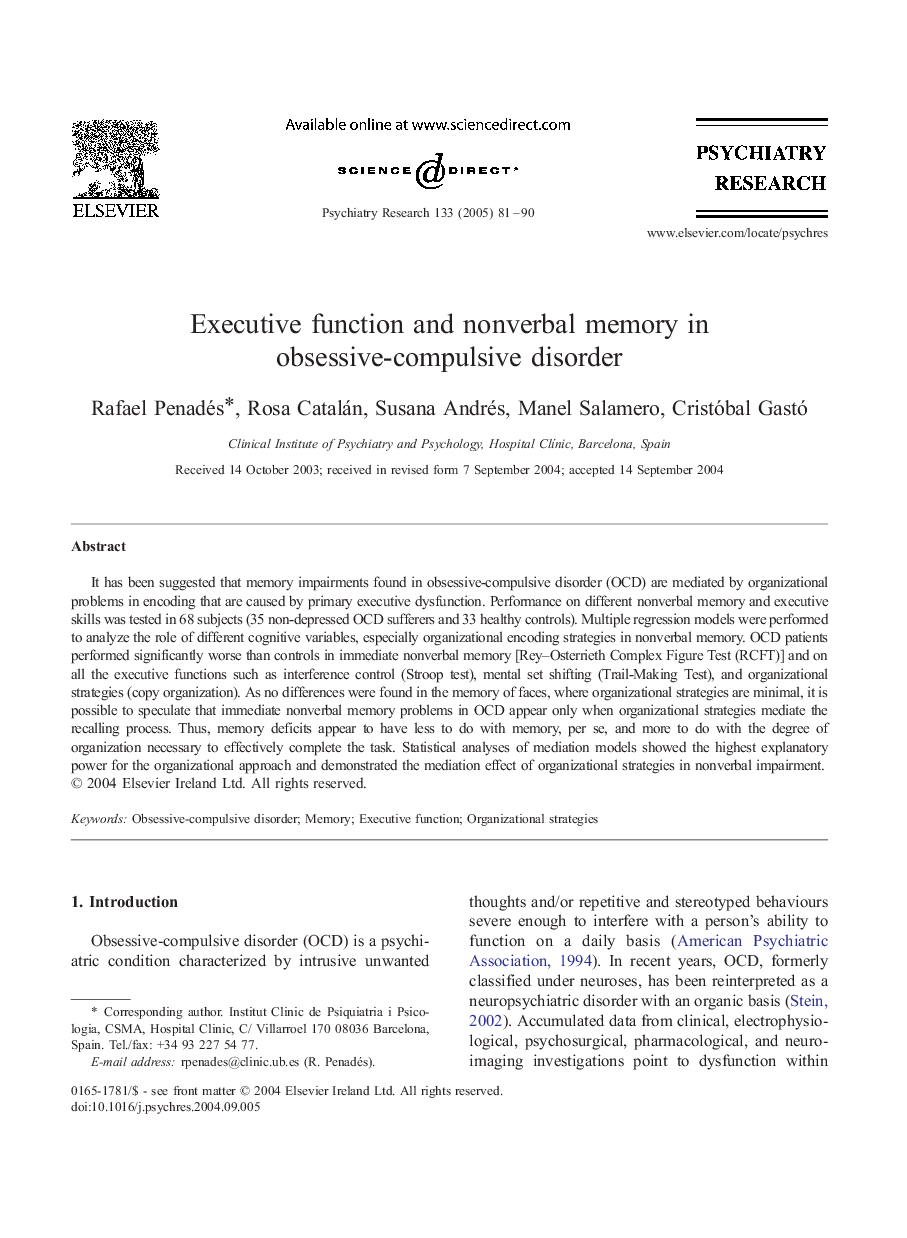| Article ID | Journal | Published Year | Pages | File Type |
|---|---|---|---|---|
| 10304579 | Psychiatry Research | 2005 | 10 Pages |
Abstract
It has been suggested that memory impairments found in obsessive-compulsive disorder (OCD) are mediated by organizational problems in encoding that are caused by primary executive dysfunction. Performance on different nonverbal memory and executive skills was tested in 68 subjects (35 non-depressed OCD sufferers and 33 healthy controls). Multiple regression models were performed to analyze the role of different cognitive variables, especially organizational encoding strategies in nonverbal memory. OCD patients performed significantly worse than controls in immediate nonverbal memory [Rey-Osterrieth Complex Figure Test (RCFT)] and on all the executive functions such as interference control (Stroop test), mental set shifting (Trail-Making Test), and organizational strategies (copy organization). As no differences were found in the memory of faces, where organizational strategies are minimal, it is possible to speculate that immediate nonverbal memory problems in OCD appear only when organizational strategies mediate the recalling process. Thus, memory deficits appear to have less to do with memory, per se, and more to do with the degree of organization necessary to effectively complete the task. Statistical analyses of mediation models showed the highest explanatory power for the organizational approach and demonstrated the mediation effect of organizational strategies in nonverbal impairment.
Related Topics
Life Sciences
Neuroscience
Biological Psychiatry
Authors
Rafael Penadés, Rosa Catalán, Susana Andrés, Manel Salamero, Cristóbal Gastó,
